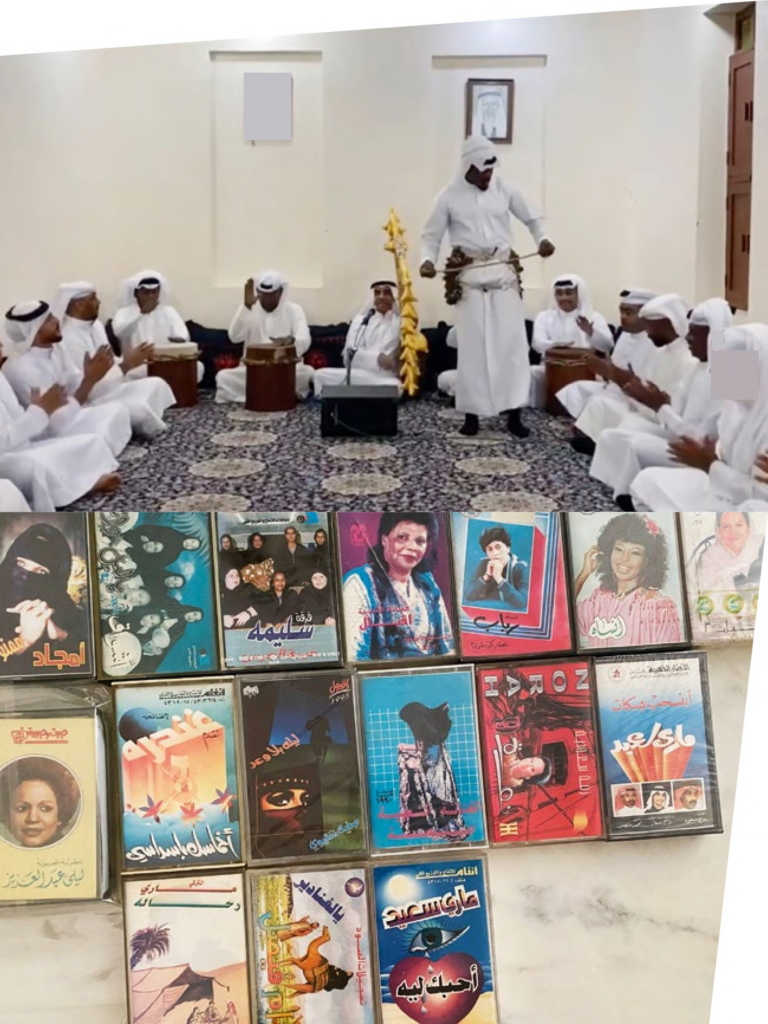TARA ALDUGHAITHER & JOE NAMY
Tara Aldughaither born 1990 in Dhahran, Saudi Arabia, lives and works in Khobar, Saudi Arabia. Joe Namy born 1978 in Lansing, MI, United States, lives and works between Beirut, Lebanon, and London, United Kingdom.
Rhythms of the Rising Sun
2024

Tara Aldughaither is an artist, curator, and vocalist. In 2020 she founded Sawtasura (meaning “voice of the image”), a community-based reimagination platform focusing on women’s musical histories in the Arab Peninsula. The platform has so far launched three physical exhibitions and one digital intervention, as well as amassing a humble collection of original records. Aldughaither is a graduate of the MA Culture, Criticism, and Curation program at Central Saint Martins in London. In addition to her curatorial work with private and public entities, Aldughaither’s practice extends into programming, publishing, and performing musical culture as an alternative form of continuing embodied knowledge in collaboration with artists from across the Arab-speaking world and beyond.
Media artist, composer, and educator Joe Namy’s practice often addresses identity, memory, and power structures embedded in sound and music. This includes the politics of bass, the color and tones of militarization, the migration patterns of instruments and songs, and the complexities of translation—from one language to another, from drum to dance, and from score to sound. Namy graduated with an MFA from New York University (2010) and has independently studied jazz, Arabic, and heavy metal drumming. His work has been per- formed, exhibited, screened, and amplified at international venues, biennales, and events across the world.
Rhythms of the Rising Sun (2024) traces migratory rhythmic ecologies from West Asia, the Indian Ocean subcontinent, East Africa, and the Arabian Peninsula. This collaborative research project aims to raise awareness of resonant sound pressures in the region today. It explores how lucid migratory patterns have shaped some of the most prominent rhythms, sounds, and music of the region, and how rhythms have in turn shaped language and ways of life. The project seeks to continue histories of embodied research, through creative methods that are informed by—but not limited to—resituating ethnomusicological collections, social rituals, scoring and notation, sonic mapping, and acoustic archives. The collaborative research work will act as a resource for other musicians and practitioners seeking to engage with these histories through modes of collective listening and performance.
